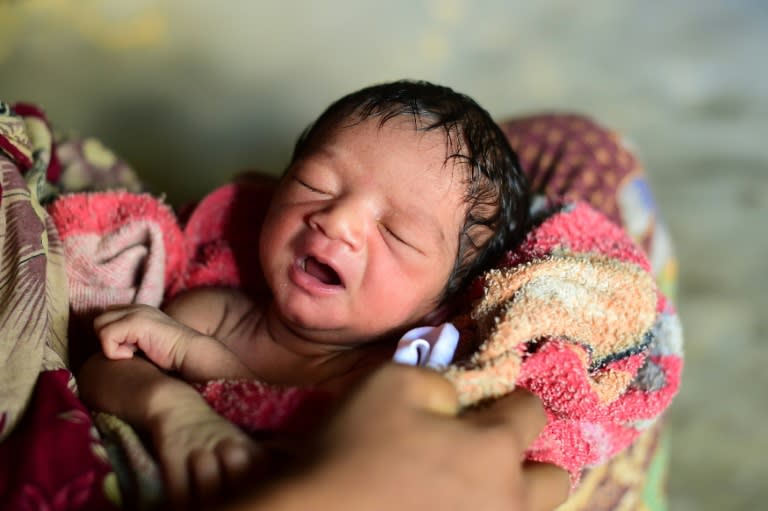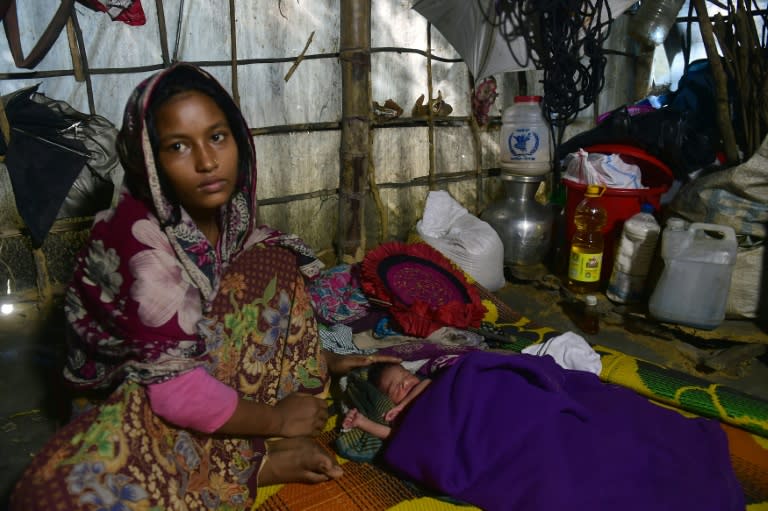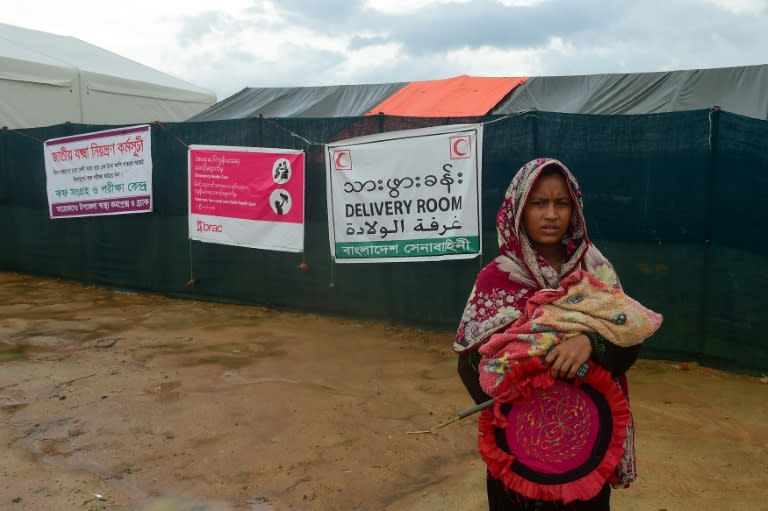Rohingya boy born in refugee camp faces uncertain future
The afternoon call to prayer sounds out around the Kutupalong refugee camp as Hasina Aktar leaves the makeshift clinic where she gave birth 24 hours earlier, barely able to walk and carrying her infant son and major doubts about their future. The 20-year-old Rohingya woman and the infant Mohammed Jubayed face a life-and-death struggle, having been swept up in one of the biggest refugee crises in decades that has seen more than 530,000 Rohingya Muslims flee ethnic strife in Myanmar in the past eight weeks. Wrapped in a torn bath towel, tiny Mohammed's skin is red with irritations caused by the heat and humidity that enshrouds the camps around the Bangladesh border town of Cox's Bazar, where the persecuted minority have sought sanctuary. Keeping clean is a struggle and post-natal infections caused by malnutrition are rife among newborns. It is one of many threats in the teeming camps now home to the Muslims from Myanmar's Rakhine state where the United Nations says there may have been ethnic cleansing. In front of the clinic, Aktar can barely speak to ask where her family are. She tried to call them on her phone, but no one answered. After 30 minutes, her husband and mother-in-law arrived -- held up by torrential rain. The family disappeared into the camp city, its muddy paths stinking of urine, with naked children playing in dark puddles and a dense smoke rising from nearby hills as evening dinners were prepared. - No space to stand - Aktar struggled to keep up with her husband and his mother as they headed back to the hut with a black plastic roof and mud floor that is Mohammed's new home. There were four adults and two children already living in the cramped space where it is difficult to stand upright. Fatima, the mother-in-law, proudly cradled the infant outside as neighbours came to congratulate her. "He has already lost weight since yesterday," she told them. Aktar seemed on the verge of collapse and went inside the hut. On returning to check on the family two days later, an AFP correspondent found the father Mohammed Reaj had gone out looking for work. He had a job as a rickshaw driver but took two days off for the birth of his son, and when he returned the owner had given the taxi to another desperate candidate. The grandmother had gone to visit relatives in the neighbouring Balukhali camp. Without money, she had to walk the seven kilometers (4.5 miles) in the heat and was not expected back until the next day. Still wrapped in the towel, Mohammed Jubayed slept on a mat in a corner of the hut among pots and pans. "When the ground hurts him, he cries," said the mother. He vomits when taking his mother's milk and she was also worried about the white colour of his faeces. But overall Mohammed was surviving well even though he still has no clothes. "I can only feed him four or five times a day, I just don't have enough milk," said the mother, still exhausted from the birth. Nur Kalima, Aktar's three-year-old daughter, made her presence felt in the background. She wants some of the attention being given to her new brother. But Aktar has to devote her time to making a meal of rice with a little salt. Getting wood to make a cooking fire is becoming increasingly difficult. When the family first arrived at Kutupalong four months ago, they collected wood in the hills. The trees have all been razed to make way for huts and wood has to be bought with cash. It is another burden for the family with little money. Amid the hammering of new shelters being built, and the horns and queues around humanitarian food trucks making a delivery, Mohammed Jubayed slept soundly for the moment with his little fists closed.






